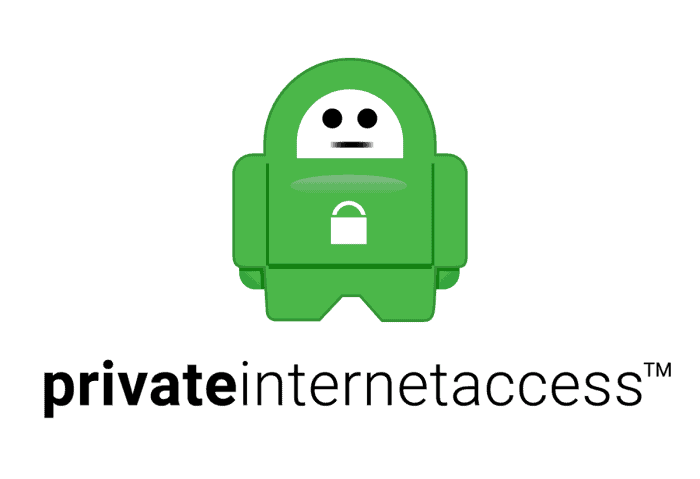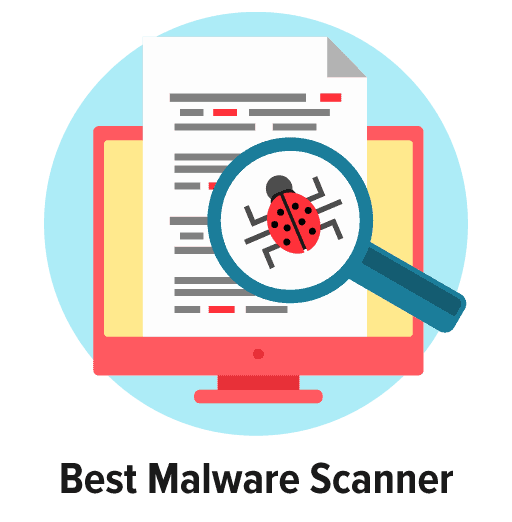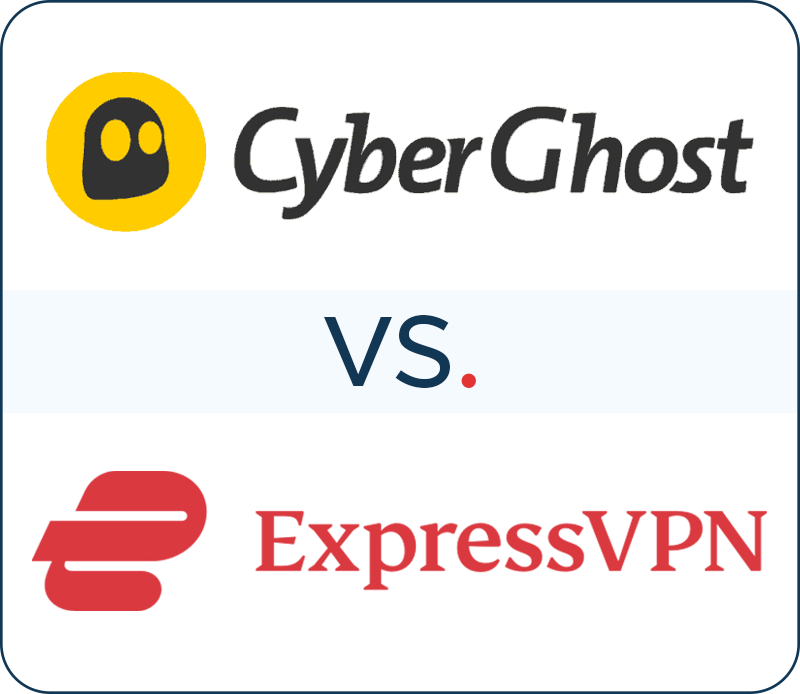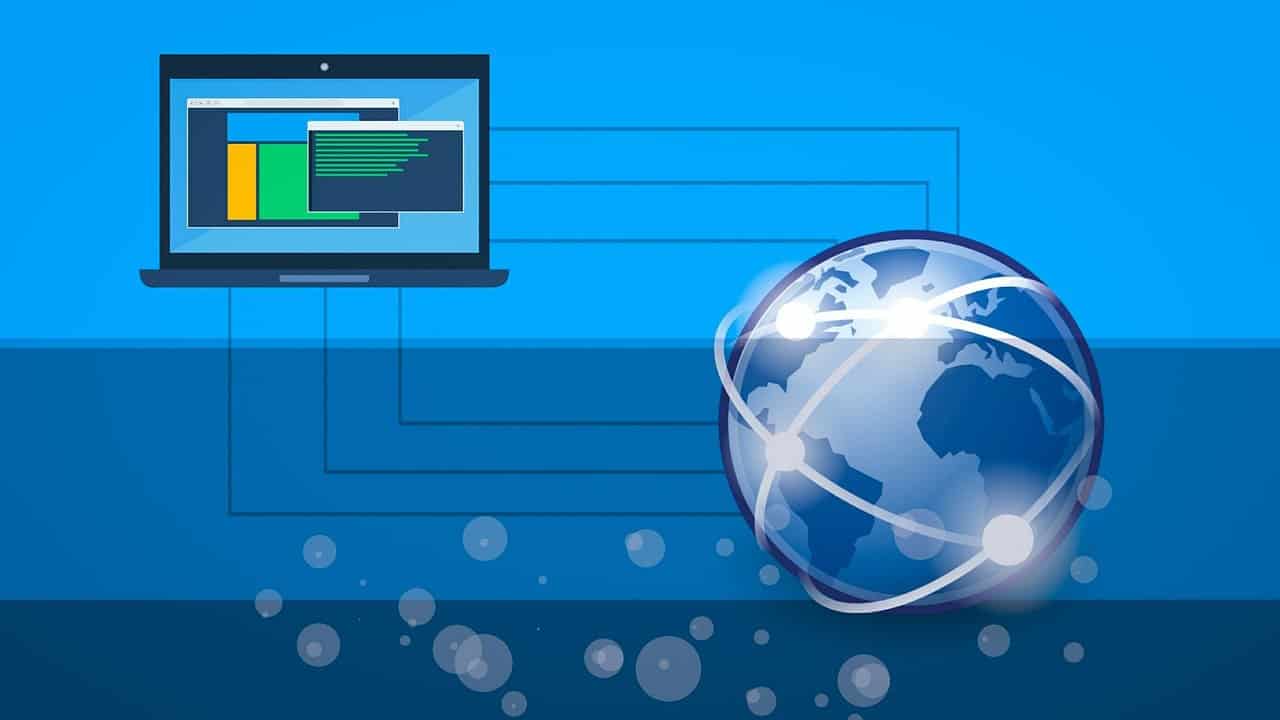Privacy Canada is community-supported. We may earn a commission when make a purchase through one of our links. Learn more.
Nord VPN vs. PIA Comparison & Review (2024)
More and more Canadians are trying to find the most reliable VPN provider. They are doing so because data hacks and breaches are becoming increasingly common.
Moreover, they are concerned about the ability of their ISP and third parties to track their movements online.
A VPN can ensure security and anonymity online no matter what you’re doing. However, there are many VPN services out there. How do you know which one is right for you?
Reading VPN reviews is an excellent place to start. When you’ve narrowed down your choices to just a few options, you still need a good way to compare them. That’s why we’ve created this comparison between NordVPN and Private Internet Access, or PIA.
NordVPN and PIA are both well-established providers that offer desirable features. Nonetheless, they are two distinct companies, and we believe that NordVPN offers superior services between the two.
Let’s take an in-depth look at NordVPN and PIA to examine how we arrived at this conclusion.
1. Speed
Speed is a critical metric for any VPN. That’s because people expect that their browser should be able to load a website in the blink of an eye. Using a VPN slows down the response time, but a really reputable VPN causes less of a delay. Inferior VPNs deliver slow, frustrating performance that makes it hard to do anything online.
On average, we like to see the percentage that a VPN slows down your speeds to be just around 10 percent. This isn’t always realistic as it depends on your location and other factors. Various factors can impact this more than others. There is an extra step in your connection which is where the encryption tunnel takes place.
Server location tremendously impacts connection speeds. If your connection has to travel a greater distance to reach the VPN server, the connection speed and browser response time will worsen.

Initial Speed
At these speeds, when held constant, almost anything on the internet is possible.

NordVPN Speed Test
With this fast of internet speed, the change from 7 ping to 37 ping is not going to be noticeable. That translates to a 0.07 second response time to a 0.37 second response time. You might notice a slight shift in hardcore gaming.
The download speeds are where we calculate the percentage change from where we started to where we end up after using the VPN. The download speed went from 98.71 Mbps to 74.15 Mbps. Again, the change is negligible and won’t impact much. However, the speeds decreased by about 24.88%, which is higher than we like to see in a perfect world.
Obviously, going from 53 Mbps to 48.18 Mbps is not a big deal when it comes to upload speed and won’t make anyone notice any significant change.

Private Internet Access Speed Test
Based on this test, PIA clearly provided faster speeds. PIA does indeed have a reputation for being fast. As we will see later however, speed isn’t everything, and most people will see little discernible difference when it comes to using NordVPN versus PIA as far as speed is concerned.
The ping and upload tests actually performed better for NordVPN than it did PIA. When it comes to VPNs and speed, the services make their money in download speed. Going down to 81.46 Mbps illustrates a 17.48% change in speeds which is closer to the 10% we like to see.
With these speeds, there should be no issues when it comes to accessing content on the internet. At 81.46 Mbps you might find that your connection speed is actually more constant than the 98.71 Mbps your ISP would provide.
Speed is obviously absurdly important. When looking for a VPN, you obviously should care about speed but it isn’t the most important thing when trying to remain private on the internet.
2. Privacy
Here is where NordVPN really starts to pull ahead of the competition. Many people who aren’t familiar with VPNs don’t understand yet that the country in which the provider is based is a critical consideration.
You want a VPN that is headquartered in a jurisdiction where VPN logging policies don’t require provider to keep any logs regarding their customers. Additionally, it’s helpful if the company is based in an independent nation that isn’t part of a surveillance network like the Five Eyes or the 14 Eyes.

The good news for NordVPN is that they are headquartered in Panama. This jurisdiction isn’t subject to U.S., Canadian or European laws. They don’t have to cooperate when law enforcement officials from other countries ask them for data.
Panama has good privacy laws too. This means that NordVPN isn’t legally required to collect and keep any sort of data about you and your online activities.
The same cannot be said for PIA. Its headquarters is located in the U.S., which is certainly a detriment as far as privacy advocates are concerned. PIA does have to comply with requests from law enforcement officials from Canada, Europe and elsewhere. The U.S. also is a member of many multi-national surveillance networks, which means that data can be shared.
Still, both companies say that they don’t keep logs. This is easily believable coming from NordVPN, but far less so with PIA. If privacy is your primary concern, you are better off with NordVPN.
3. Watching Netflix
Many people use a VPN with the hope of being able to access Netflix in another jurisdiction. Netflix deplores this practice, which is why Netflix blocks access when using a VPN.
If Netflix didn’t want you to do this then they shouldn’t restrict access to certain shows. In Canada alone, there are hundreds of shows and thousands of movies that you can’t access unless you are in the US.
At current count, the Canadian version of Netflix has 629 shows and 2942 movies. While that is a lot, our neighbors to the south have 1081 TV shows and 4579 movies. It seems silly not to at least attempt to get the same money’s worth United States users are getting. (Read: How to get American Netflix as a Canadian)
It takes a wily VPN to get around Netflix’s restrictions these days. In our testing, both NordVPN and PIA were able to accomplish this task, but with varying degrees of success.
| US to Canada Netflix | US to UK Netflix | US to Japan Netflix | US to Australia Netflix | |
|---|---|---|---|---|
| NordVPN | ||||
| PIA VPN |
With NordVPN, we were able to access Netflix from every server we tested. What’s more, this VPN provided us with access to Amazon Prime Video, Hulu and BBC iPlayer (the hardest geo-restricted service to access). If streaming is your main online goal, then NordVPN has to be your top choice.
The outcome wasn’t as bright for PIA. The service’s performance with Netflix varied widely depending upon which server we connected to. Netflix proxy errors popped up fairly consistently, and we weren’t able to connect to any other streaming services.
This is a prime example as to why speed isn’t the end all be all of VPN service. If you can’t access streaming services in other countries then your VPN is only operating at half capacity.
4.Torrenting
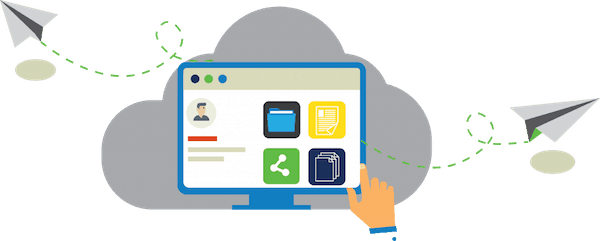
Accessing pirated content and torrenting that content is a common practice on the internet today. The facts are facts and 22% of all global bandwidth is used for online piracy. That means that almost a quarter of the activity on the internet is devoted to torrenting.
While it has a bad reputation, torrenting itself isn’t illegal. The illegality of torrenting comes from downloading copyrighted material that you have no claim on. It is hard to tell what is legal and illegal and while you might have the purest intentions at heart, you might accidentally download something illegally. It’s better to be safe than sorry.
Torrenting can be a dangerous activity and no one wants to be told by their ISP to stop torrenting Kung Fu Panda for the 13th time. Torrenting has to be done privately – which is where a good VPN steps in.
Some VPNs are better for torrenting than others. Speed does play a role in torrenting as lower speeds can hurt the download speed of the torrented file.
NordVPN has an undoubted reputation for being torrent friendly, but PIA also supplies BitTorrent support for its users. Both companies restrict users as far as which servers may be used for P2P file sharing.
However, whereas PIA only allows P2P access on servers in eight countries, NordVPN does so in 37. This means that you are far more likely to enjoy a positive torrent experience while using NordVPN.
You can’t go wrong with either service here which means we can call it a wash.
5. Reliability
When you’re ready to surf the Internet, your VPN needs to be ready too. Just as critically, your VPN needs to maintain a steady connection while you’re online so that your activity doesn’t get exposed to other parties. If your VPN does go down, then it needs to have a reliable kill switch that will cut off your browsing session at once.
Throughout our VPN strength tests, NordVPN consistently provided the most reliable performance. We were able to connect to a variety of servers without a lot of issues. There were occasional bumps in the road, but we could get around these by trying different servers.
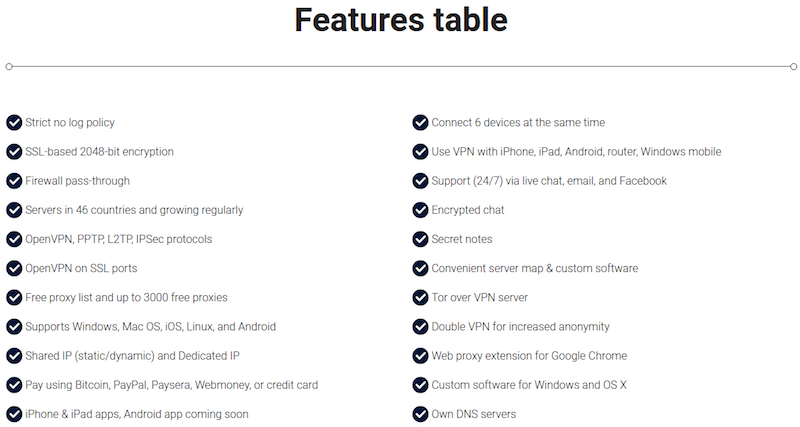
We encountered more difficulties with PIA in terms of getting connected quickly and easily. Moreover, we had some problems with maintaining a good connection. We also experienced less consistent download speeds.
6. Best Value
NordVPN is a little more expensive month-by-month compared to PIA, but it becomes really affordable with a long-term contract. PIA has a similarly inexpensive long-term contract. However, it is worth noting that NordVPN features a 30-day guarantee while PIA’s is only seven days. Also, PIA does not offer a free trial.

What Can a VPN Do?
The main benefits of a VPN all surround your privacy on the internet. There are many benefits to using a VPN. Everything is accomplished through encryption tunneling and servers in different parts of the world.
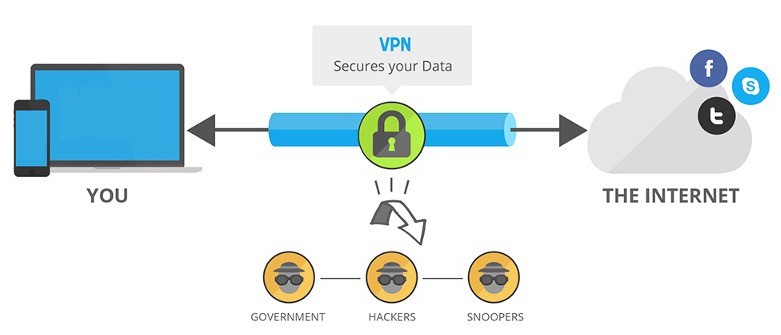
- Improved Security – VPNs help shore up your secret information from hackers, government agencies, and any other malicious entities after your information. The way a VPN accomplishes this is by masking your IP address by funneling your traffic through a third-party server and encrypting the information. Internet service providers will not be able to see where your IP address is visiting because it will see the encrypted traffic.
- Anonymity – Hiding your IP address is a mainstay of VPN technology.
- Remote Control – A VPN allows you to access information from a server that is usually location restricted.
- Bypass Filters and Restrictions – Accessing Netflix from other countries and other streaming services are a huge benefit. Accessing other media such as video games that normally would not be accessible is also an added plus.
- Stable Performance – While speeds might be slightly lower, servers from a reputable VPN service tend to be more stable than local internet providers. ISPs tend to throttle speeds depending on a variety of factors.
What Should You Look For?
It’s hard to know what to look for when shopping for a VPN, especially when you have no prior information. There are many factors to look for that will help you make your decision. More info about this also in our Nord vs Express guide.

- Price – The first factor everyone looks at is price. How much is too much and how much is too little? In the VPN industry, as a general rule, long-term contracts offer huge savings. Look no further than NordVPN to see how much a three-year contract can impact your cost. Reputable VPNs can range anywhere from $3 to $15.
- Speed – When using the internet and going the extra mile to protect yourself, the last thing you want is to completely throttle your speeds. Using a VPN that has horrible speeds kind of defeats the purpose of using the internet. There are services that check all the boxes in every category except speed and there are services that only provide fast speed and meager protection. It’s best to weigh what is most important to you when looking.
- Privacy and Security – The main reason you’re looking for a VPN is privacy and security. Whether you’re accessing restricted content or want to protect your bank account, there is always the concern of accomplishing this securely. Making sure your VPN doesn’t log activity and resides in proper jurisdiction can go a long way.
- Access to Geo-Restricted Content – One of the biggest draws for VPNs is the ability to access Netflix and other streaming services in other countries. Not all VPNs are created equal in this regard. Make sure to see if the service you use can access the proper streaming services.
- Server Count and Location – Figuring out where servers are located and how many servers are available is an important aspect of VPN shopping. It goes a long way for accessing content as well as impacts speed. As a general rule, the closer you are to a server, the faster your speeds will be. The more servers and locations, the better.
- Number of Connections – One often overlooked access is how many simultaneous connections you can have on the VPN. If you can only have one connection at the time, you won’t be fully protected. An important aspect of this is being able to connect to a router. If you can connect to a router, you can cover all of your devices.
- Customer Support and Knowledge Base – Even more important than a reliable customer support team is a full knowledge base. Using a knowledge base can save time and energy. If you have questions, the answer should just be a few clicks away. Having competent and reliable customer support is also important and should be a high priority.
- Trials and Money Back Guarantees – The industry standard is a 30-day money back guarantee. There are a few VPN services that only offer a 7-day money back guarantee. A few VPNs actually offer a free version of the software that has limited data usage and feature use. Having at least a month to try something out is always an added bonus.
Don’t Use a Free VPN
If you read any warning on the internet about a free VPN, you will see the same warning: If you don’t pay for the product, you are the product.

It is impossible to avoid that warning because the truth is the truth. If you use a free VPN, the service will probably log your activity and sell it. There are a few other malicious ways a company can make money off of you. The gist of this warning is don’t use a free VPN service.
There are exceptions. The most important one is that there are a few awesome VPN companies that offer a free version of their software. This is a huge differentiator as the free versions only give you limited use of their VPN.
They’re using a freemium technique to upsell you into using their product. There is nothing wrong with using these services and using them can give you a good idea of how much you’d like the service. To reiterate, use the best free VPNs, but only ones that offer a free trial or money-back guarantee.
Deciding to use a completely free service can also lead to painful experiences in general. The service offered will be horrible and the connections will be glacial. It’s better to just not use a VPN rather than subject yourself to a free VPN.
FAQ
Is Pia a Good VPN?
As one of the most popular VPNs, Private Internet access has proven itself as one of the best as well. We recommend NordVPN more the PIA but PIA still delivers the goods.
Does Private Internet Access Work With Netflix?
PIA works with Netflix on a large number of their servers. NordVPN currently works with Netflix on all of their servers.
Does NordVPN Have a Kill Switch?
Yes, as soon as your internet connection isn’t secure, the Automatic Kill Switch will cut your internet. This ensures that your sensitive data is not compromised even if the VPN drops for a second.
Is NordVPN Private?
Yes, NordVPN is completely private and permits P2P traffic. NordVPN is considered one of the best options in the VPN space.
Which VPNs Work With Netflix?
Most of the big names work with Netflix. NordVPN works on all of their servers and PIA works on most of their servers. Other VPNs have varying degrees of success with their servers.
How Many Devices Can You Have on Private Internet Access?
You can install as many devices as you want with PIA but only 5 simultaneous connects can be used at a time from a single subscription. PIA allows router connection, which will allow almost unlimited connections.
What Are the 14 Eyes Countries?
There are groups and coalitions that share data with each other and can access businesses records that reside in those countries. As a general rule, you want to avoid using a VPN in any of the 14 eyes countries, 9 eyes countries, and 5 eyes countries. Generally, the 5 eyes countries are the worst as they are also in the 9 eyes alliance and 14 eyes alliance.
- 14 eyes countries: Germany, Belgium, Italy, Sweden, Spain, Denmark, France, Netherlands, Norway, Australia, Canada, New Zealand, United Kingdom, United States
- 9 eyes countries: Denmark, France, Netherlands, Norway, Australia, Canada, New Zealand, United Kingdom, United States
- 5 eyes countries: Australia, Canada, New Zealand, United Kingdom, United States
Final Thoughts
All in all, both of the VPNs talked about here are great services. Both come recommended from us at Privacy Canada. With that being said, NordVPN fares better than PIA in almost every category besides speed in our testing and analyses.
If speed is what you’re after, PIA and a few others are better choices than NordVPN.
If NordVPN could ramp up their server speeds, they would be top dog in every category in the VPN space.
The beauty of this is that they both offer money back guarantees. Testing both of the services is as easy as it gets.
You Might like:
- Best VPN in Canada (French: Meilleur VPN)




